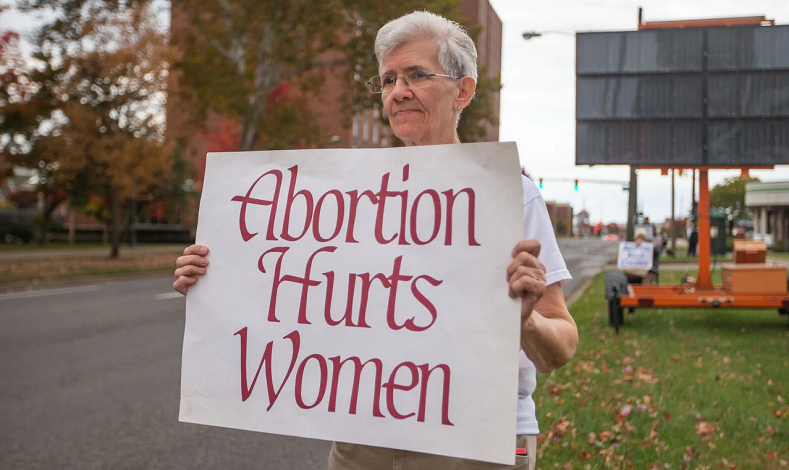On Aug. 16, the U.S. Court of Appeals for the 5th Circuit affirmed a lower court’s order that sought to protect the health and safety of women by restoring safeguards to the use of chemical abortion drugs that the Food and Drug Administration unlawfully discarded. The ruling is on hold until the Supreme Court weighs in, but in the fervor that erupted following the district court’s order, some in the media began peddling a variety of absurd claims that are sure to continue.
Perhaps the most misleading assertion being pushed is that the chemical abortion drug mifepristone is safer than Tylenol. The notion that somehow the two-drug chemical abortion regimen (the first drug ends the unborn baby’s life, while the second drug induces labor and delivery in the mother) is less dangerous than a common pain medication isn’t just sloppy or disingenuous reporting based on an inaccurate or misleading interpretation of studies. It is a lie designed to push a political agenda.
The Los Angeles Times was so confident about the inflammatory power of this claim that they put it in a headline . The article went on to cite a pro-abortion group’s document that relies on a study about the adverse effects related to overdosing on Tylenol, specifically liver failure. This dishonest apples-to-oranges approach compares Tylenol abuse with mifepristone use and then gleefully reports that Tylenol is more dangerous than mifepristone.
How about Bloomberg ? As the Supreme Court was drafting its Dobbs decision, Bloomberg asserted that mifepristone “sends fewer people to the ER than Tylenol or Viagra,” but the article links to another unhelpful study . Setting aside the fact that this study evaluated Tylenol overdoses in just two hospitals in four counties in Virginia, Bloomberg applies the same sleight-of-hand approach to compare adverse effects from Tylenol overdoses with adverse effects from mifepristone labeled use.
HELP LIFENEWS SAVE BABIES FROM ABORTION! Please help LifeNews.com with a donation!
USA Today jumps on the bad-statistics bandwagon too, claiming, “Acetaminophen, or Tylenol, is responsible for 56,000 emergency department visits, 2,600 hospitalizations and 500 deaths per year in the United States.” Again, this claim is based on an invalid comparison: These adverse events are attributed to misuse of Tylenol — not use as directed under the FDA’s approved labeling.
Comparing harm from overdoses versus harm from labeled use is totally misleading. Any drug, even vitamins, can be dangerous when not used as directed. Tylenol, when taken according to its labeled use, is not dangerous to the average person. Chemical abortion drugs, however, can be harmful even when taken according to their labeled use — hence a lawsuit against the government agency that approved the labels. And unlike chemical abortion drugs, Tylenol has a list of contraindications that do not necessarily require a doctor’s visit to identify.
Here’s an illustration of how misleading this is: Imagine that a teenager is trying to convince his parents to let him buy a motorcycle instead of a car. He presents data about the relative safety of the two vehicles, comparing the number of motorcycle fatalities that take place nationwide in ideal conditions, when the driver is wearing a helmet and driving responsibly, with the number of car fatalities that take place when the driver is intoxicated, unbuckled, and speeding.
This is the same thing these media outlets are doing: comparing two totally different sets of data to get a predetermined outcome. These numbers might make it seem like a motorcycle is in fact a safer vehicle for a young person to drive. But smart parents would not buy their son a motorcycle based on this data — just like no one should accept that mifepristone is somehow safer than Tylenol.
Mifepristone is dangerous , but just how dangerous? It’s almost impossible to say because the FDA has gone out of its way to be uninformed about the number of adverse effects caused by mifepristone. Despite pleas from the public to do so, the FDA has never required medical professionals in emergency departments, hospitals, and urgent care centers to report any adverse events from chemical abortion drugs, even though the FDA knew that many women would seek immediate medical treatment for mifepristone complications from these facilities.
And in 2016, the FDA even stopped requiring prescribers of mifepristone to report nonfatal adverse effects. On top of all this, some abortion activists tell women to lie about having taken mifepristone if they need to go to an emergency room. That advice is intended to prevent the FDA and the public from ever knowing about the many women who experience hemorrhage, infection, incomplete abortion, and other nonfatal but devastating effects from mifepristone.
In other words, the FDA’s reporting requirements intentionally fail to account for the true number of adverse events of the chemical abortion drug regimen. One reviewing court called this “ostrich’s-head-in-the-sand approach … deeply troubling.” That is one reason why physicians and medical personnel sued the FDA.
We do not know nearly enough about the harm mifepristone causes to women and girls, but we do know one thing: no one can credibly claim that Tylenol is more dangerous than chemical abortion drugs.
LifeNews Note: Erik Baptist, senior counsel with Alliance Defending Freedom ( @ADFLegal ), represents four doctors and four medical associations in Alliance for Hippocratic Medicine v. U.S. Food and Drug Administration.








